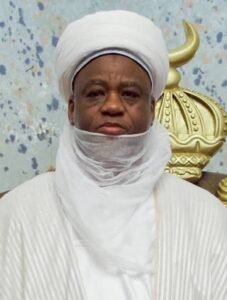Atiku Abubakar: One Man, Many Parties—A Timeline of Political Nomadism

Since 1999, no Nigerian politician has redefined the art of political defection quite like Atiku Abubakar. A founding member of the PDP, Atiku’s journey through Nigeria’s major political parties has been as frequent as it has been strategic—always chasing the elusive presidency, yet never securing it.
2006 — First Exit (PDP → AC)
It all began with his fallout with President Olusegun Obasanjo over the 2007 succession. In typical Atiku fashion, he exited the PDP and joined the Action Congress (AC), contesting against his former party. He lost to Umaru Musa Yar’Adua. That marked the first of many departures.
2009 — The Return of the Prodigal Founding Member (AC → PDP)
Not long after, he fell out with AC leader Bola Tinubu. Once again, Atiku retraced his steps to the PDP—this time hoping to clinch the presidential ticket. He failed again, this time to Goodluck Jonathan in 2011. The pattern was already forming: jump ship, aim high, miss the mark.
2014 — The “New Blood” Promise (PDP → APC)
Dissatisfied with the PDP’s internal politics, Atiku moved again—this time to the newly formed APC, championing a wave of change ahead of the 2015 elections. But again, he couldn’t secure the party’s ticket, losing to Muhammadu Buhari. Another defection, another dead end.
2017 — Full Circle, Again (APC → PDP)
By 2017, Atiku was back in the PDP fold. He cited marginalization and unfulfilled promises by the APC. He secured the PDP presidential ticket in 2019, yet the presidency remained out of reach—defeated again by Buhari.
2025 — Coalition Politics (PDP → ?) Fast forward to 2025. The PDP’s loss in 2023 and its internal meltdown prompted Atiku to exit again. Though he hasn’t officially declared a new party, reports indicate he’s aligning with opposition figures like Peter Obi and David Mark under the African Democratic Congress (ADC) banner—a new coalition front to challenge Tinubu in 2027.
My Take?
Atiku’s journey is not just a timeline—it’s a masterclass in political restlessness. His repeated defections speak more to ambition than principle. With every switch, he tells Nigerians he’s leaving due to failed promises or lack of democracy. Yet each new alliance seems more about personal calculation than national transformation.
At some point, we must ask: if one man has changed parties this many times and still hasn’t achieved his goal, maybe the problem isn’t the parties. Maybe, just maybe, it’s the man.








